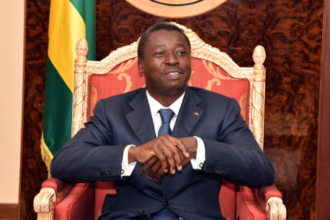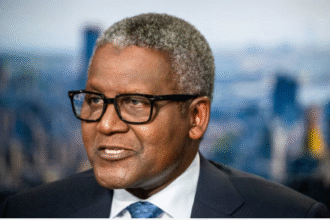By Abu Hassan
Accra, Ghana – In a bold move aimed at reforming its lucrative gold sector, the Ghanaian government has ordered all foreign nationals involved in local gold trading to cease operations and leave the country by April 30, 2025. The directive, announced by the Ghana Gold Board (GoldBod), follows the implementation of the new Ghana Gold Board Act 2025 (Act 1140), signed into law by President John Dramani Mahama on April 2nd.
The government argues that this drastic measure is essential to improve gold sourcing from small-scale miners, combat smuggling, and ultimately increase revenue generated from the nation’s most valuable export.
“This decision, while significant, is necessary to ensure Ghana benefits fully from its natural resources,” stated Prince Kwame Minkah, Public Relations Officer of GoldBod. He emphasized that the directive applies to all foreigners currently engaged in local gold trading.
Under the new Act, GoldBod, a newly established government body, now holds the exclusive authority to buy, sell, test, and export gold sourced from small-scale mining operations. All previously issued export licenses are now rendered invalid. While foreigners are barred from directly purchasing gold from miners, they retain the option to apply to GoldBod for permission to purchase or export the precious metal.
Finance Minister Cassiel Ato Forson has previously stated that the creation of GoldBod is intended to allow Ghana to capture more value from its gold exports and bolster currency stability.
The timing of this decision is particularly significant. In 2024, Ghana’s gold exports surged by 52.6% to $11.6 billion, a substantial increase from $7.6 billion in 2023. Notably, nearly $5 billion of this revenue was generated from legally sanctioned small-scale mining operations. Gold currently accounts for a staggering 57% of Ghana’s total export revenue, underscoring its critical role in the national economy.
As Africa’s leading gold producer and a major player on the global stage, Ghana’s export destinations paint a picture of worldwide demand. In 2024, the United Arab Emirates received 53.1% of Ghana’s gold exports to Asia, while Switzerland absorbed 60.2% of exports destined for Europe. Within Africa, South Africa accounted for 60.5% of gold shipments originating from Ghana.
However, the move has ignited debate. Some experts worry about the potential impact on investment and argue that the abrupt departure of foreign traders could disrupt the market. Others support the government’s stance, claiming it’s a necessary step to protect Ghana’s resources and empower local businesses.
The announcement comes amid rising gold prices, which recently surpassed $3,200 per ounce for the first time. This surge is attributed to global economic uncertainty, including trade tensions between the United States and China, prompting investors to seek refuge in gold as a safe-haven asset.
The coming months will be crucial as Ghana navigates this significant transition in its gold sector, balancing national interests with the potential economic consequences of its decision. The world will be watching to see if this bold move will ultimately benefit Ghana and solidify its position as a leading force in the global gold market.









